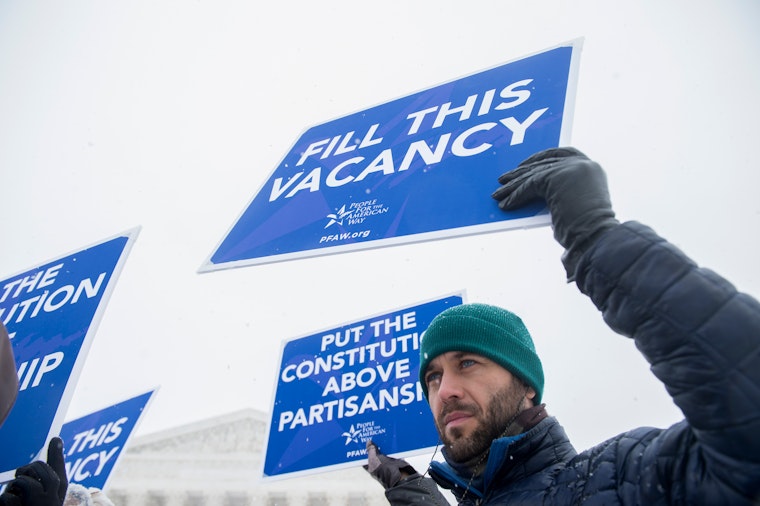What Scalia Would Have Wanted the Senate to Do
By Danyelle Solomon

I fondly remember sitting behind lions during my time as counsel to the Senate Judiciary Committee, in the era of Senators Edward Kennedy, Arlen Specter, Orrin Hatch, Patrick Leahy, and Joseph Biden. They were all members of the Senate Judiciary at the time, and for decades had been writing laws and implementing policies that have had true impact on the lives of everyday Americans.
They didn’t always agree, but they always showed respect for one another. The upper chamber, as the Senate is sometimes referred to, had a sense of decorum and shared understanding that members should be above the fray, capable of putting politics aside to ensure the nation continues to function.
Somewhere between that time—just six years ago—and now, we have clearly lost our way. Within minutes of learning of the death of Supreme Court Justice Antonin Scalia, a communications staffer on the Judiciary Committee tweeted that his death meant a “full stop” on all judicial nominations. This tweet, as well as the obstructionist conduct from Senate Republicans in the days after, is exactly the partisan wrangling that Justice Scalia fought against. Scalia himself once stated, “I am not happy about the intrusion of politics into the judicial appointment process.”
And yet, this is exactly what is happening today.
Whether you agreed or disagreed with Justice Scalia’s interpretation of the Constitution, the office in which he sat demands more respect that it is being shown. That same level of respect should also be accorded President Barack Obama. Whether you support his politics or not, he is still the president of the United States, endowed with the constitutional authority—and obligation—to name Scalia’s successor.
To be clear, disagreement can be constructive. Part of the opposition’s job is to challenge you, and make you question whether your choice is the right one. That voice of dissent is essential. Justice Ginsberg’s own statement on the late justice acknowledged this, stating, “We disagreed now and then, but when I wrote for the court and received a Scalia dissent, the opinion ultimately released was notably better than my initial circulation.”
But when disagreement becomes outright partisan obstruction, government ceases to function. And what we are seeing from Republicans in the Senate is beyond dissent or disagreement; it represents a concerted effort to stop government from working.
The idea that the Supreme Court of the United States could have a seat vacant for almost two terms is unprecedented and dangerous. The work of the court impacts people’s daily lives, and the current obstructionist posture of the Senate leadership is completely contradictory to the public’s will. In fact, 62 percent of Americans agree that the Senate should do its job and vote on President Obama’s Supreme Court nominee.
Failure to have a fully functioning judicial system should not be tolerated. Six Supreme Court justices have been confirmed in presidential election years, including three Republican appointees. Additionally, the last 11 times the U.S. Senate has confirmed a Supreme Court justice nominated by a president of the opposite party, a Democratic-controlled Senate confirmed Republican nominees.
Article II of the U.S. Constitution clearly states that the president has the power to nominate Supreme Court justices with the advice and consent of the Senate. The language is clear. The Senate should execute its sworn duty by providing a hearing for the nominee and giving an up or down vote. Anything less is exactly what Justice Scalia didn’t want: “absurd political theater.”
The Center for American Progress is a grantee of the Open Society Foundations.
Danyelle Solomon is director of Progress 2050 at the Center for American Progress.


